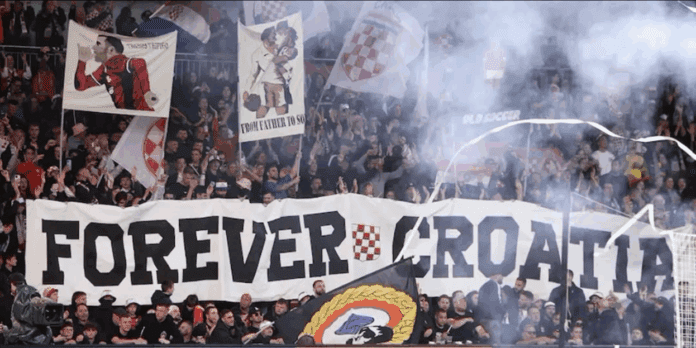‘Forever Croatia is a place for exchanging information and generating interest in the history and heritage of Croatian football clubs worldwide’
Interviewer: Suzana Fantov
Foto: ‘Forever Croatia’
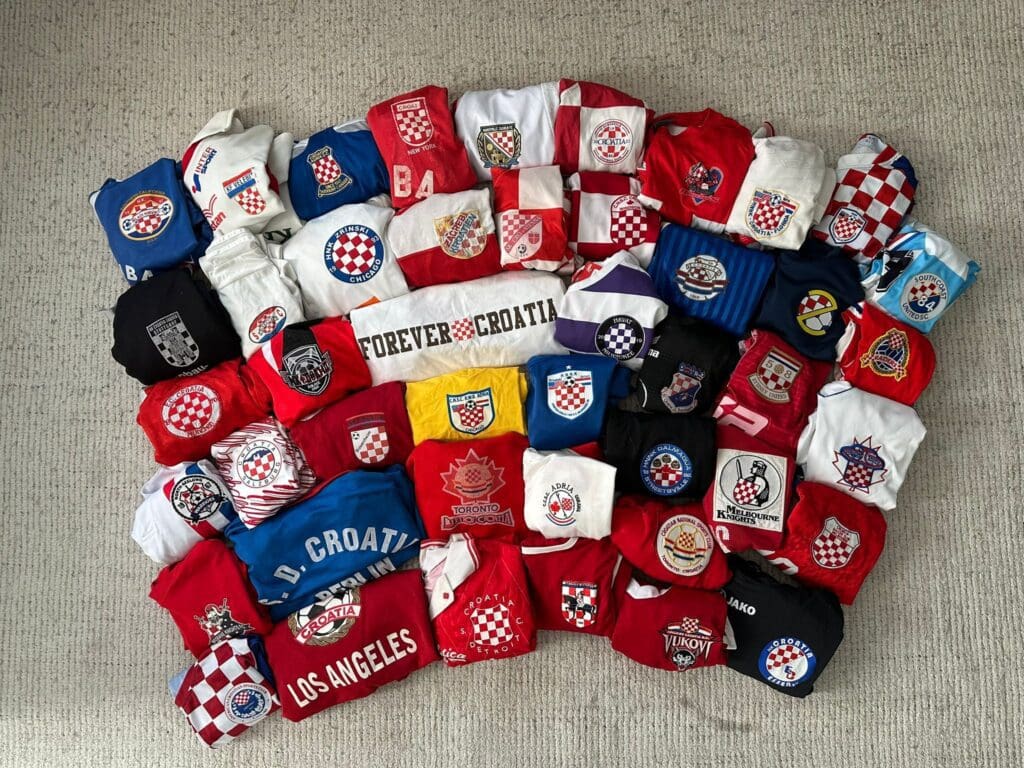
Returning to Croatian roots with a digital mission
Jozo Kolakušić, a contributor to Hrvatski Vjesnik (Croatian Herald), born in Melbourne, returned to Croatia a few years ago – a great football enthusiast who successfully started a new chapter of his life in our beautiful homeland, as well as a very interesting page on the Facebook social platform.
Titled ‘Forever Croatia’, he created a ‘place’ that honours the history and heritage of Croatian football clubs around the world, thus creating a new way to connect the community, both in the diaspora and in the homeland, preserving and documenting rich sporting heritage.

The birth of an idea to preserve Croatian football heritage
“The idea came through many conversations I had with people in Croatia and in the diaspora, who knew a little about our Croatian football clubs in the diaspora but not enough. They only knew that some famous national team players came from certain clubs, but beyond that, nothing was known, nor could one read anything substantial in Croatian on the internet. This was evident from conversations with people in Croatia and with younger generations from the diaspora.
I noticed they didn’t know enough about the history of their own clubs where they grew up. And that they emptily idealised clubs from the other side of the world, instead of appreciating and being proud of the clubs they grew up with, which their fathers and grandfathers built. This idea had been smouldering in me for years, and in summer 2023, in August, while driving on the motorway from Zagreb to our beautiful Adriatic.
From small beginnings to international recognition
I mentioned the idea to a good friend who was at that time the president of a well-known Croatian club. He encouraged me that it was an excellent idea and to proceed with it, along with useful advice on how to adopt successful habits and information sources and books that I could research to gather as much material as possible for the future page. It was started on Instagram on 23/08/2023, with several friends following. Later also on Facebook.
What I didn’t expect was how much the page would grow in a short time and explode. Friends of mine quickly contacted me and joined, offering their help and support; David Deak from Geelong, Steven Puškarić from Sydney, Maks Jurković from Adelaide, Joe Baričević from Edmonton and Ante Radoš from Hamilton, Canada. Today we have an international team of people who know their local area best and help me with collecting materials and information to tell the story as well as possible,” Jozo explains to us from the beginning of the idea until today, a page that has been visited in large numbers.
Documenting Croatian football clubs worldwide
“So far, we’ve covered topics of the very beginnings of football Croatias around the world, from Cleveland, New York, Chicago, Los Angeles. To Toronto (North American champions 1976) and Vancouver in Canada to Sydney, Melbourne, Adelaide (the oldest Croatian football club in Australia with the name ‘Croatia’) and Geelong in Australia. It first started with old pictures from the years these clubs were founded, then pictures and short biographies of significant individuals from these clubs. To the famous successes and titles these clubs won in their countries where they competed. These are all stories that I heard growing up from my parents to materials I read as a child through books and newspapers such as Hrvatski Vjesnik for example.”
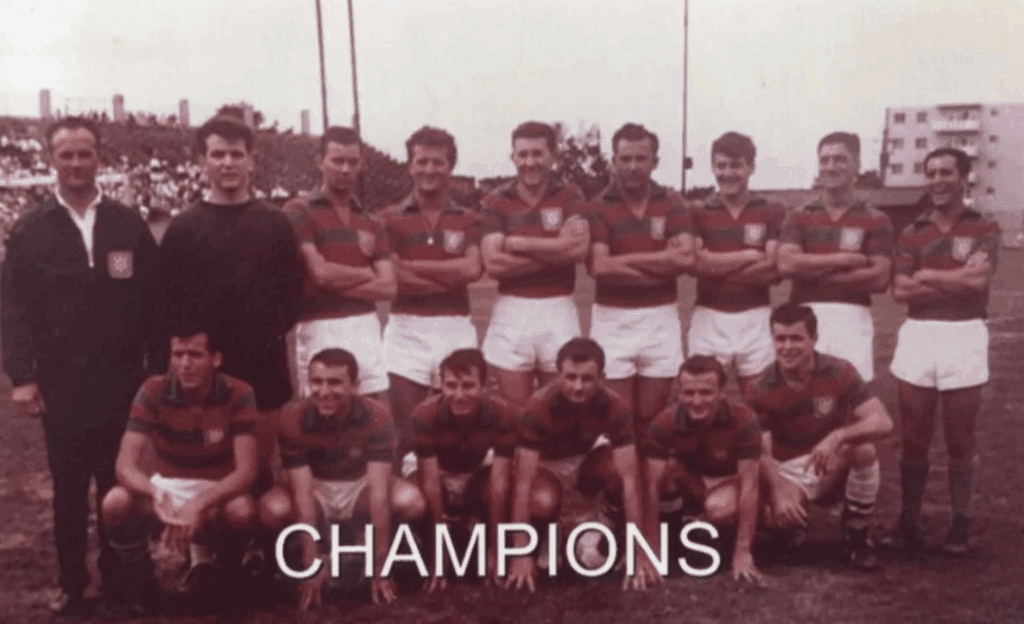
Promoting Croatian identity through sport
“The key values were promoting the name of Croatia in every possible corner of the world, while there was no free and internationally recognised Croatia. The name ‘Croatia’ was heard in Australia, North America, Europe and South America thanks to the sporting successes of these clubs with Croatian designation.
Just as Croatian sport and the Croatian national football team are the best possible ambassadors for Croatia today, so were the Croatias at that time while we still didn’t have our own national team to represent us on the international stage. The Croatian national team is actually a continuation of the work of all the people who founded, created and worked for those Croatias around the world.”
Safe havens for Croatian culture in foreign lands
“Croatian clubs have definitely contributed to the preservation of Croatian culture and identity, because in every country around the world where Croatian clubs were founded, they provided a safe haven in foreign countries and a meeting place for Croatians where they could be ‘among their own’. I think that value is especially important today, because there is no longer a struggle for independence and recognition of Croatia. Instead, these Croatian clubs, both cultural and sporting, maintain that awareness of origin and the country from which generations of the third and fourth generation are now maturing.”
Building Bridges Across Generations Through shared history
“The Forever Croatia page has definitely connected many people, both older and younger generations. Because growing up in the Croatian community in Melbourne, one could always feel that generational gap and lack of knowledge and understanding for one another. Through pictures, recordings and personal stories that people have contributed from private archives, all who follow that page have somehow felt connected and proud of their fathers and grandfathers.
Who created these clubs and did unimaginable things today, raising clubs from the foundations with their own resources and that long before the internet. That they too were once young and were ‘cool’, I think that’s one of the biggest successes. I have the impression that the thinking of younger generations towards older ones has changed a little, and that they feel some pride in their ancestors.”
Legendary figures connecting Croatian clubs with Australia
“Billy Vojtek, Mark Viduka, Mark Šilić, Frank Jurić for Croatia Melbourne, Josip Šimunić and Ned Zelić for Croatia Canberra; Manis Lamond, Tony Popović, Željko Kalac, Mark Rudan, Ante Miličić for Croatia Sydney. For Croatia Adelaide, Charlie Perkins who was an Aboriginal activist who especially loved and praised Croatians. After going to England to play football for Liverpool and Everton, he returned to Australia to continue playing football and after his career became a famous activist for Aboriginal rights. He played for Croatia from Adelaide along with two more Aboriginal players Gordon Briscoe and John Moriarty.
Outside Australia, there is also Toronto Croatia which was the champion of North America, which gathered the cream of Croatian and European football players of those victorious 70s. One of those players is one of the best strikers who ever played football in the time of the famous Pelé, Eusebio who is a legend of the Portuguese national team and the Portuguese football club Benfica.”
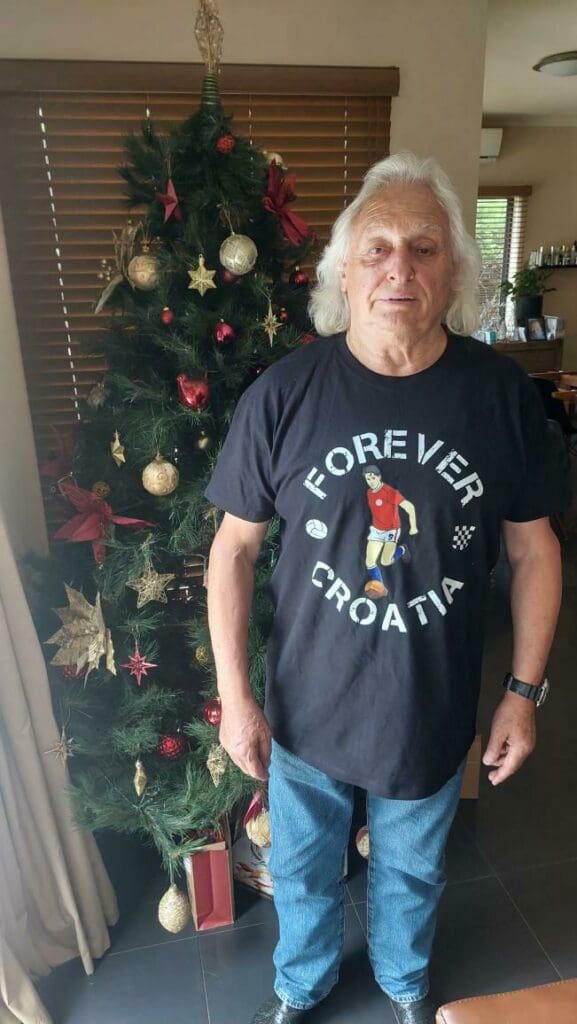
Personal connection to Croatian football heritage
“That was my identity growing up in Australia. I am fortunate to have grown up with Croatia Melbourne (Knights) in the last years while they were competing in the National Soccer League of Australia – NSL. So while my parents took me to those matches, I was aware of the size of the club I grew up with. Along with watching the Croatian national team from the 1998 generation, my childhood idols were those players who wore the red, white, blue jersey.
My favourite thing was to open the newspaper on Monday at school after Croatia/Knights would win while it was the old NSL so I would boast to my friends and teachers at school. Along with, of course, the successes of the Croatian national team, that affirmed my Croatian identity.
For example, when they beat Italy 2-1 at the World Cup in Japan 2002. That day I wore a Croatian checkered jersey under my uniform at a school that was predominantly full of children of Italian origin. That was a proud day at school, after years of crazy questions like ‘Where is Croatia’, ‘Does that country even exist’. Suddenly, that stopped and I got instant respect from other children and teachers. Or when Goran Ivanišević won Wimbledon in 2001 and when Janica Kostelić won a gold medal at the 2002 Winter Olympics in Salt Lake City, USA. Such events confirmed to the wider public that Croatia definitely exists and can be the best in the world in everything it competes in.”
Memorable moments in Croatian club football
“I would say the last Croatian derby in the National Soccer League 2004 between Sydney and Melbourne Croatia. That was a day to remember for the Croatian community, the last time the stadium of Croatia Melbourne was so filled. Until the Cup of Australia 2022 when Croatia Sydney entered the final and played in front of 16,000 fans and 2023 when Croatia Melbourne entered the semi-final and had a crowd of over 5,000 fans at home, which was also nice to see from a distance in the homeland Croatia. Where it was written about in newspapers in Croatia like Sportske Novosti and Večernji list.”
Preserving club history for future generations
“I think some clubs are already doing that well, especially under the influence of this Forever Croatia page. But I believe that all clubs should put old pictures and recordings on their websites and social media, so that younger generations could connect older successes with current ones.
And the focus should be on all community members becoming paid members of their clubs. Just as in England or Germany in the 4th division, everyone from the local community is a member and financially supports their local clubs.
Not some big and famous clubs from the other side of the world, with which they have no connection. One can only sincerely love the club they grew up with and the one that represents them and their values.”
Lessons from history for modern Croatian identity
“A lot, that today’s free and modern Republic of Croatia would not exist if there hadn’t been decades before 1991 of lobbying and promoting the name of Croatia, through activism, through sporting successes which promoted the Croatian name on the international scene.
Key historical moments for Croatian clubs worldwide
“The years these clubs were founded, titles won. For example, for Croatia Melbourne when they became champions of Australia, when they won the NSL in 1995 over Adelaide City Juventus and 1996 over Marconi from Sydney. When Croatia Sydney won the NSL league in 1986, 1997 and 1999 and when they were in the Grand Final in 1988, 1997, 1999. When Toronto Metros Croatia became the champion of North America on 28.8.1976 at the Soccer Bowl in Seattle, USA with a 3-0 victory over Minnesota Kicks.
That the first international match of the Croatian national team against the USA on 17.10.1990, was organised by Croatians from Canada and America thanks to their contacts in the local federation. That the first official international match of Croatia under the auspices of FIFA, after its re-establishment, was played in Australia on 5.7.1992 right at Olympic Park Stadium in Melbourne where Croatia Melbourne had played at that stadium for decades before, creating history and winning titles. All of this is connected and should be known to the wider public.”
Uncovering archive materials and historical documents
“I was recommended the book ‘Holy Name Croatia’ by Marin Sopta, where I was surprised by how many Croatias exist around the world. I thought there were about a dozen, when through that book I found out there are over 265 around the world. Books about the history of Toronto Croatia, for example, I bought in old bookshops in Croatia. Publicly available materials on the internet, from pictures to video recordings are there, they just needed to be connected in one place.
My co-administrator David Deak, together with me, has invested hundreds and hundreds of hours in researching materials and statistics. Transferring old recordings from VHS to digital format, and collecting old pictures from private archives, both from friends, from his own family and his wonderful father who preserved all this valuable material. Together with my father, we can say that we have hundreds, and perhaps thousands, of hours of gold-value material for our followers who are eager for information.
Then after that, individuals themselves started to contact us with pictures and recordings from their family archives, restoring old glory to once forgotten materials and events from history that people who got in touch or were themselves actors in those events sympathise with. A particularly proud moment for me was when the author of the book about the history of Croatia Canberra, Bernard Luštica, contacted me last year.
After I published pictures about that proud club, he told me that he has much more material in the book he compiled in 1999 for the 40th anniversary of their club, founded in 1958. And this past summer he personally handed me that book “From Hope to Glory – 40 years of Canberra Croatia”, over a pleasant coffee in sunny Split, explained all the details regarding the creation of that book and many more useful information that helped this page.”
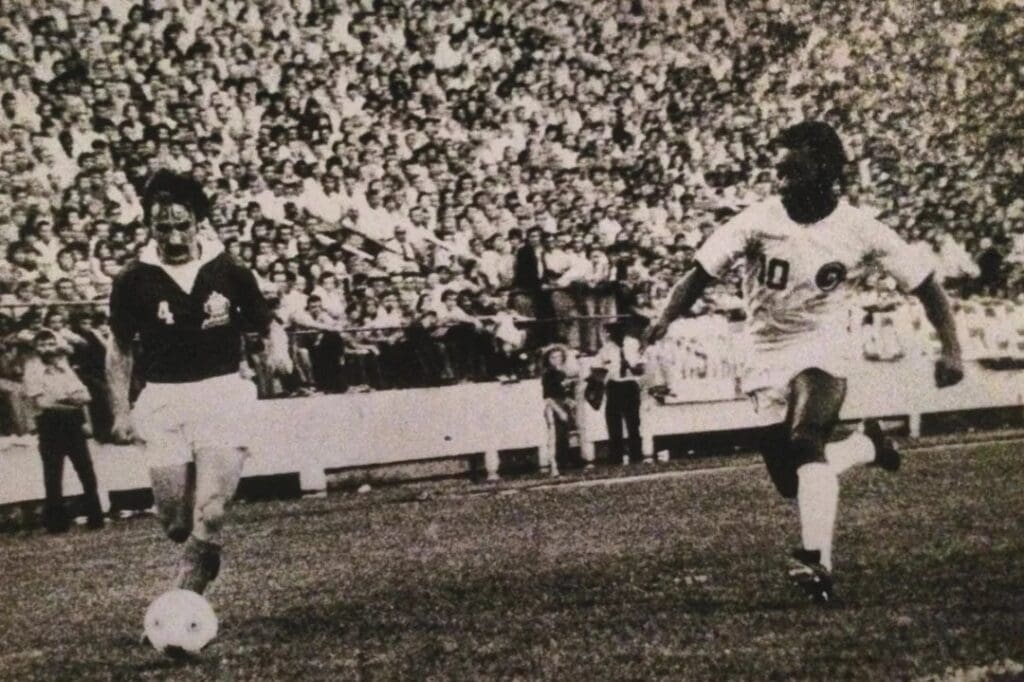
Invitation for collaboration and contribution
“Absolutely, many have already done so, and I thank them for all the help they have provided to the work of this page and all individuals who have reached into private archives and asked family members who are living witnesses of the time, to retell that history so that it could be better told through the posts of this page and to the reader themselves who absorbs that information.”
We thank you for the conversation and recommend our readers visit the Forever Croatia page on Facebook, which now firmly holds its place for preserving, sharing and celebrating these important traditions and connections.
“I agree, it has already become a central place for preserving memories of all achievements and important events for those Croatian clubs around the world. I believe it will continue to gradually grow and connect people from all over the world, with a common history and similar stories that connect them all.”

1976 victory in the NASL Soccer Bowl final over Minnesota Kicks 3-0.
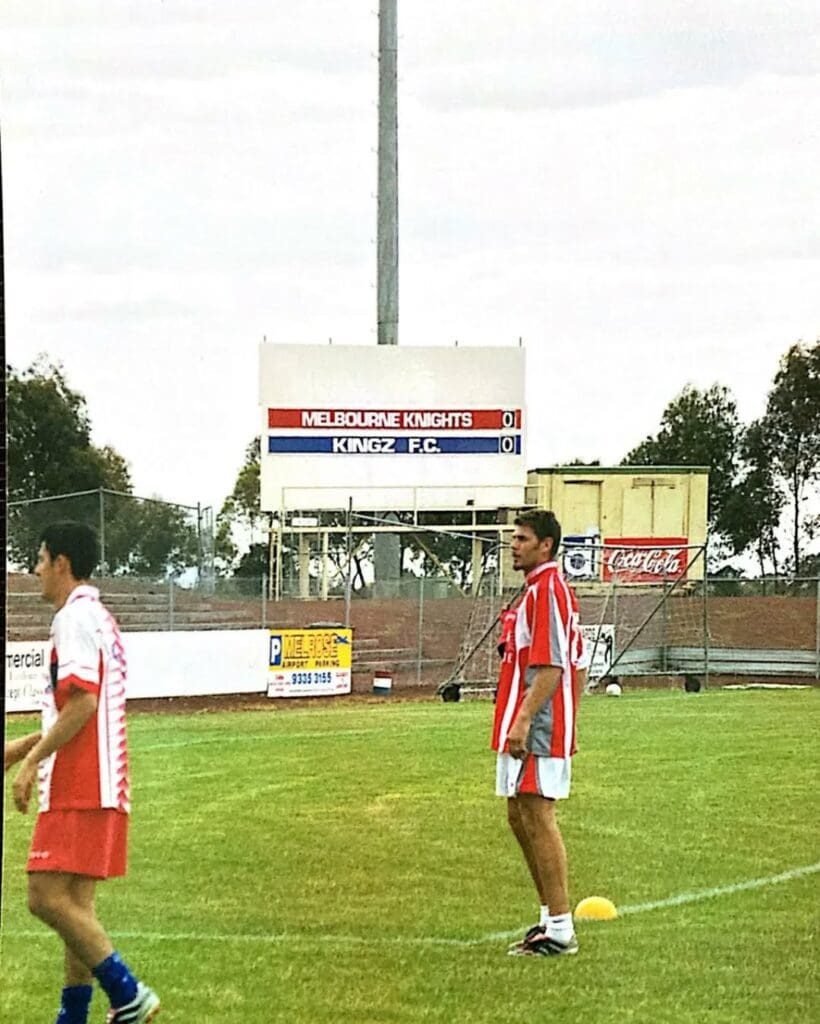
For more great moments in Croatian footbal history around the world follow
follow Forever Croatia on Instagram

